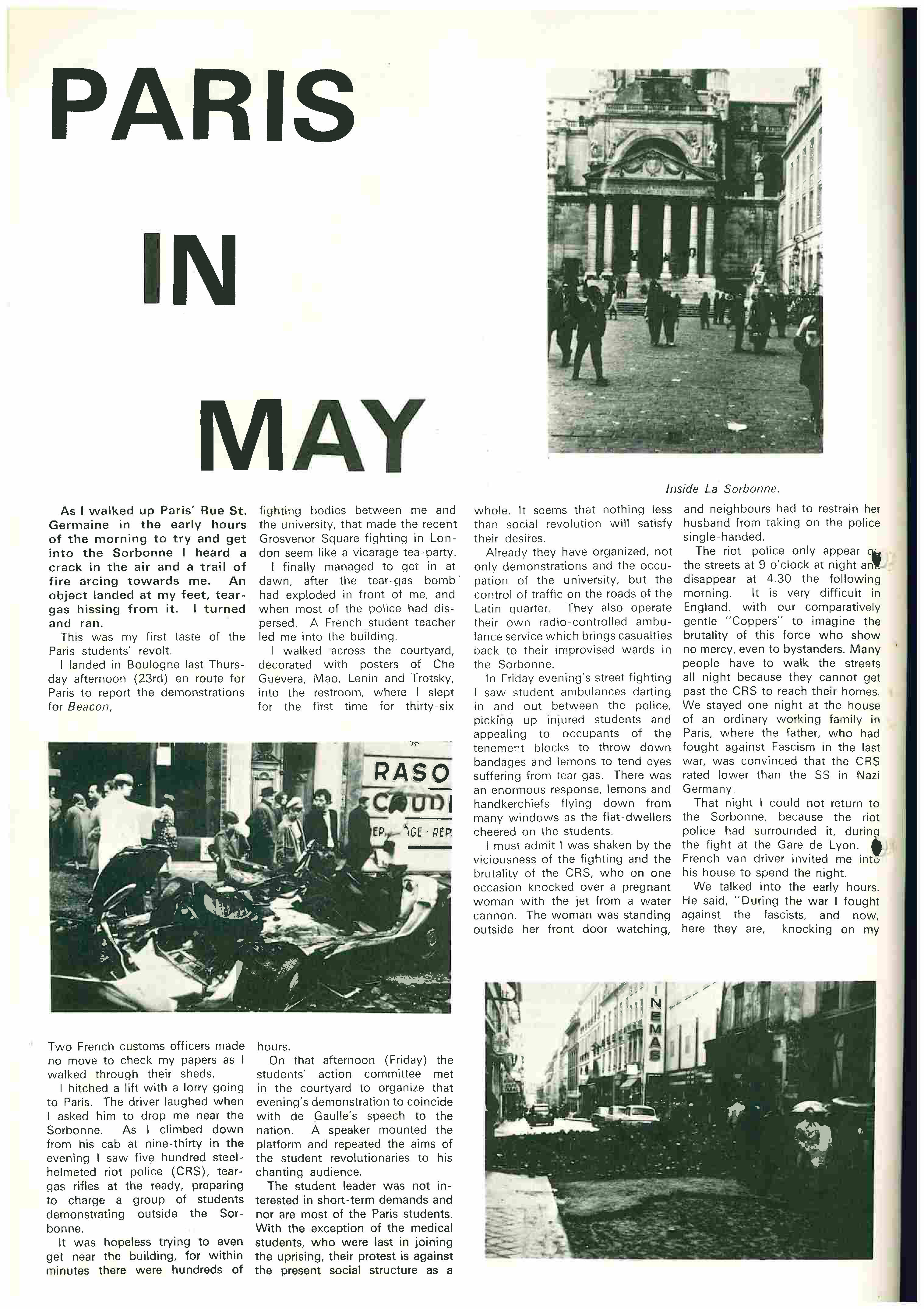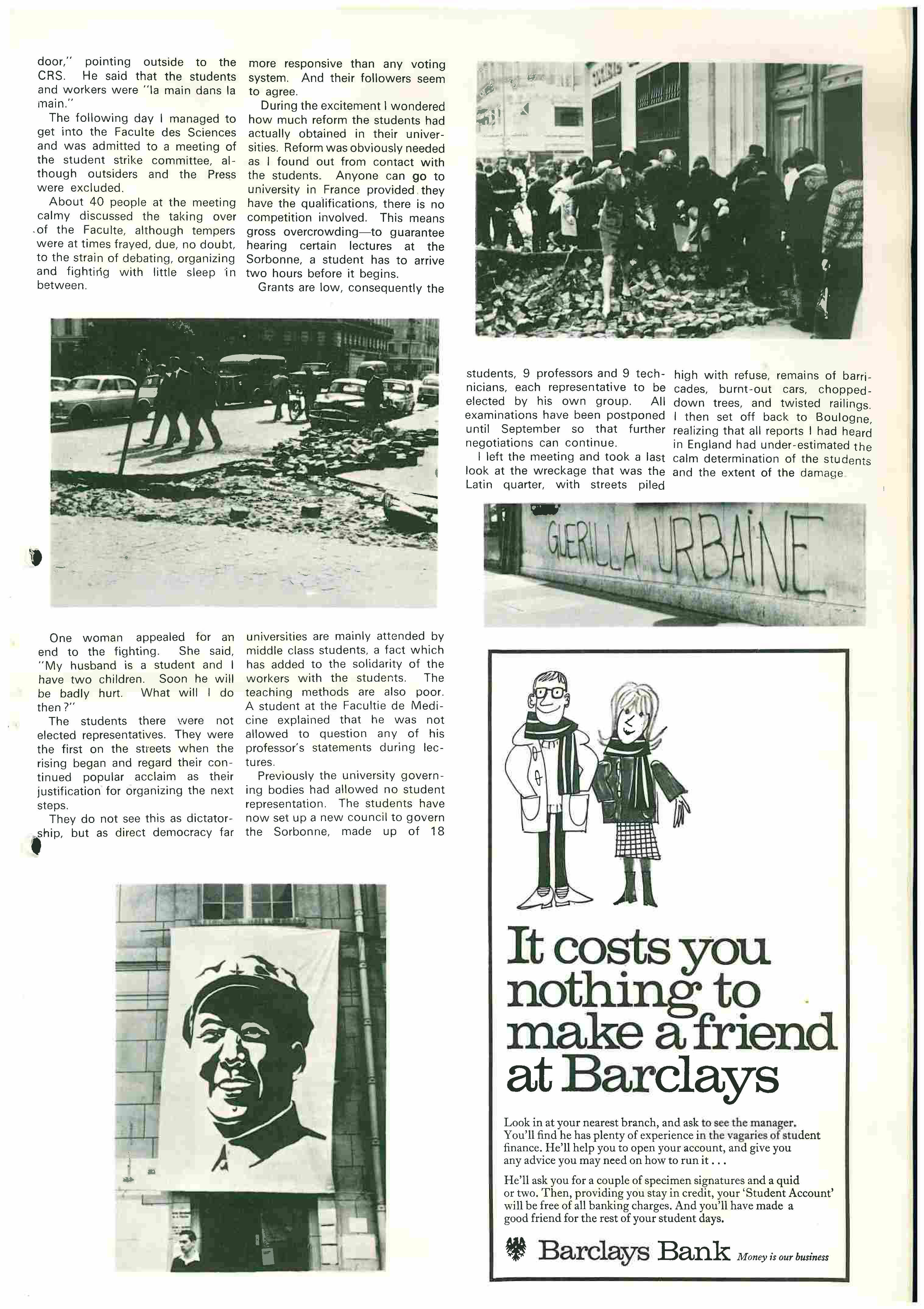From the archives: 1968 has become synonymous with radicalism.
1968 around the world
Around the world, in 1968, people began protesting. Several countries in Eastern Europe experienced major unrest. In Czech, the Prague Spring was a hopeful period of liberalisation, artistic exploration and democratisation.
The Civil Rights and Anti-War movements in the US ramped up, following the murders of Martin Luther King and Robert Kennedy. West Germany experienced the 68er-Bewegung which saw protests against the Vietnam War, ex-Nazi officials still in positions of power and universities. London itself saw rioting in Grosvenor Square. The reporter calls it “a vicerage teaparty” in comparison to events in Paris.
1968 in Paris
Paris was the centre of this whirlpool of revolution and it began with the students. On 2nd May 1968 the authorities shut down the Paris Nanterre University. On 6th May a protest was called by the French NUS. Events developed from this and barricades were thrown up. Heavy handed responses from the authorities led to further action and mass sympathy.
Following more protests and more violent responses, a general strike was called on 13th May. After this day workers began strike action and by one point in May around two thirds of French workers were on strike. There were demands for a new government. On 29th May, President Charles De Gaulle had (briefly) fled from France.
City and 1968
Published in June 1968 in the Beacon, a eye witness account offers a clear sighted report on the events. It describes the violence of both sides, but also the solidarity and optimism of the students: “It seems that nothing less than social revolution will satisfy their desires”.

The legacy of 1968
1968 is sometimes called a political failure for the protesters. Following events in May, France held a general election which De Gaulle’s party safely won. Czech was invaded by Russian Troops in August and American involvement in Indochina expanded under Nixon.
Perhaps the greatest legacy of 1968 was the social liberalisation which we are still enjoying today. Reading firsthand accounts like this however, remind us that we all have a duty to protect everyone’s rights and to support peaceful engagement that questions society.
